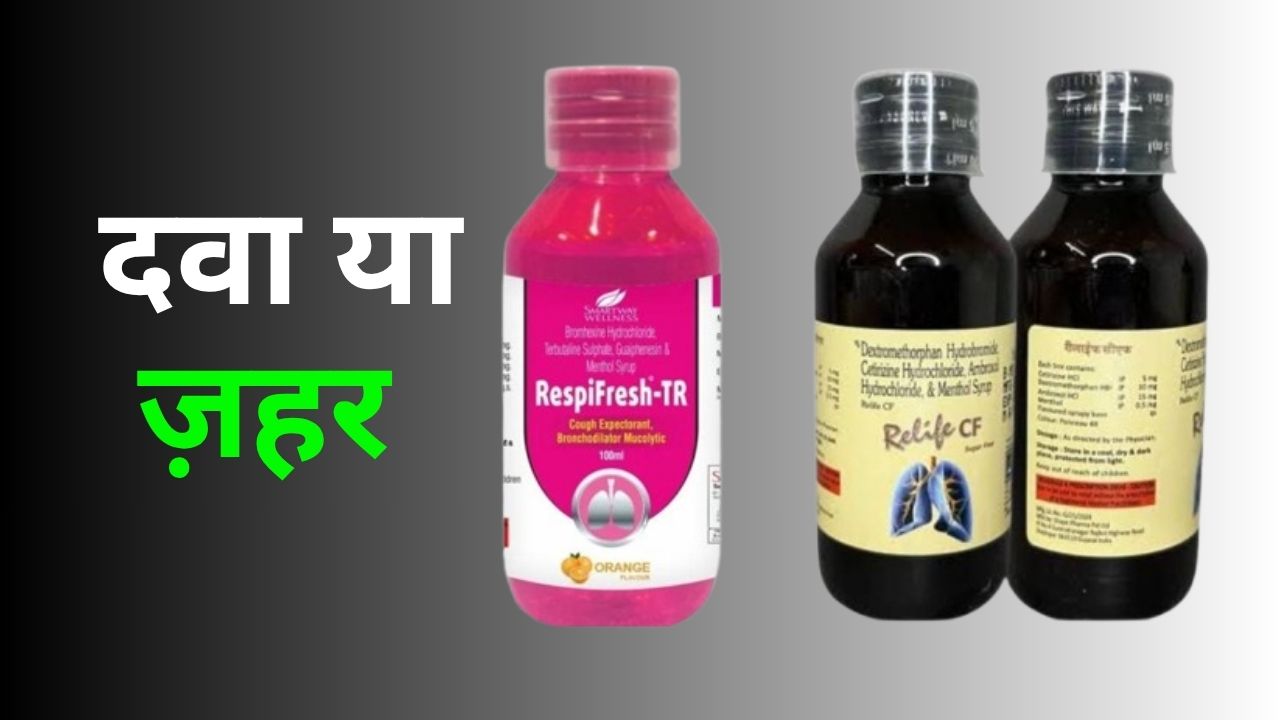- Global Silver Shock: India’s Demand Disrupts London Markets
- 1 GB Internet Costs Less Than A Cup Of Tea: PM Modi Says
- Coal India gearing up to meet spurt in summer coal demands
- Oil Prices Surge 3.7% as U.S.-Iran Standoff Triggers Higher 2026 Forecasts
- Access to credit, recognising household labour critical to enhancing women’s role in agriculture
Contaminated Indian cough syrups like Coldrif, laced with toxic diethylene glycol, have killed over 20 children under five, mostly from kidney failure in Madhya Pradesh. Amid probes and arrests, Bengaluru pharmacies illegally sell such syrups without prescriptions, fueling easy access and risks.
The Deadly Shadow of Contaminated Cough Syrups in India

In a heartbreaking turn of events in 2025, India grapples with yet another crisis involving contaminated cough syrups that have claimed the lives of over 20 young children. The latest scandal centers on Coldrif syrup, laced with toxic diethylene glycol (DEG), a cheap industrial solvent that has no place in medicines. Primarily affecting children under five in Madhya Pradesh, these deaths from acute kidney failure highlight deep flaws in the country's pharmaceutical oversight. As investigations unfold, the tragedy underscores a persistent threat to public health, echoing global concerns raised by the World Health Organization (WHO).
Unraveling the Crisis: What Happened in Madhya Pradesh?
The deaths began surfacing in late August 2025 in Chhindwara district, Madhya Pradesh, where at least 19 children succumbed after consuming Coldrif syrup prescribed for common coughs and colds. Laboratory tests revealed staggering levels of DEG—up to 48.6%, nearly 500 times the permissible limit of 0.1%. This toxic chemical, often substituted for safer pharmaceutical-grade solvents like propylene glycol to cut costs, metabolizes into harmful compounds that damage kidneys, leading to rapid organ failure. Parents like Shivani Thakre, whose three-year-old died, now cling to memories amid calls for justice. The total toll has climbed to over 20, with similar cases reported in neighboring Rajasthan, where two more children perished from a different contaminated syrup containing dextromethorphan, unsafe for toddlers.
Government Response: Bans, Arrests, and Recalls

Swift action followed the revelations. Multiple states, including Madhya Pradesh, Kerala, Tamil Nadu, Uttar Pradesh, and Jharkhand, banned Coldrif and two other tainted brands—Respifresh and ReLife—after tests confirmed DEG contamination. The Central Drugs Standard Control Organisation (CDSCO) ordered production halts for the manufacturers and initiated joint audits of cough syrup producers nationwide. In a major development, police arrested the owner of Sresan Pharmaceutical Manufacturer, the Tamil Nadu-based firm behind Coldrif, on charges of manslaughter. A prescribing pediatrician, Dr. Praveen Soni, was also detained for alleged negligence. Door-to-door retrievals have recovered hundreds of contaminated bottles, while the Union Health Ministry mandated stricter testing under revised Schedule M norms, effective by December 2025, emphasizing quality risk management and supply chain traceability.
Regulatory Gaps Exposed: A Recurring Nightmare
The WHO has voiced "deep concern" over India's "regulatory gap" in screening domestically sold syrups for DEG and ethylene glycol (EG), noting that while exports face rigorous checks since 2023, local products often slip through. This isn't isolated; Indian-made syrups have killed over 140 children abroad since 2022—in Gambia (70 deaths), Uzbekistan (18), and Cameroon—and 12 more in Jammu, India, in 2019-2020. Experts blame cost-cutting by small manufacturers, inadequate raw material testing, and a fragmented market flooded with unapproved, over-the-counter syrups. As Dinesh Thakur, a public health advocate, notes, "Many poor patients turn to local chemists for advice, assuming expertise that's often absent." The booming cough syrup market, fueled by easy access and cultural reliance on syrups for children, amplifies these risks.
Illegal Sales in Bengaluru: Fueling the Fire

Amid the national outcry, a New Indian Express investigation on October 11, 2025, exposed Bengaluru pharmacies flouting rules by selling cough syrups without prescriptions, including potentially contaminated ones like Coldrif. Despite Schedule H regulations requiring doctor's notes for such drugs, shops in the city openly dispensed them, citing "common demand" for minor ailments. This lax enforcement not only eases access to codeine-laced syrups abused for euphoria but also heightens dangers from toxins like DEG. Similar violations persist in rural areas, where unqualified shopkeepers advise parents. States like Kerala have countered with strict no-prescription mandates for pediatric drugs, warning of license suspensions, but Bengaluru's urban sprawl demands urgent crackdowns to prevent local tragedies.
A Call for Change: Protecting India's Children
This scandal demands more than reactive bans—it calls for systemic overhaul. The Indian Medical Association has urged Health Minister JP Nadda to withdraw cases against whistleblowers and enforce pharmacovigilance. Opposition leaders like Sachin Pilot push for judicial inquiries to uncover truths beyond government probes. Parents, haunted by loss, plead for affordable, safe alternatives and education on rational medicine use. As India eyes its pharmaceutical prowess, closing these gaps could save countless lives, ensuring that a simple cough doesn't become a death sentence.
The fight against contamination is far from over, but with global scrutiny and domestic resolve, hope glimmers for safer tomorrows.
India’s ties with Israel ‘unfortunate’ – Iran
Iran criticizes India's deepening ties with Israel as 'unfortunate,' amid Prime Minister Modi's recent state visit that elevated bilateral relations t
India has constantly brought home medals in many dance categories: Lourd Vijay
Indian dancers are increasingly competing on global platforms, with the country establishing strong dominance in traditional folk dance categories whi
HPCL recruitment for 700 vacancies: Check details and direct link to apply here
Hindustan Petroleum Corporation Limited has launched a major recruitment drive offering over 700 officer-level positions across India, with applicatio
Why Allahabad HC ruled UP’s anti-conversion law does not bar interfaith live-in relationships
The Allahabad High Court has ruled that Uttar Pradesh's anti-conversion law does not prohibit consensual interfaith relationships between adults, affi











